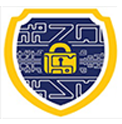What You Can Do To Protect Sensitive Information
The average unprotected computer that connects to the Internet can be compromised with in moments. There are thousands of infected web pages that are meant to have unauthorized access to sensitive information, steal important documents and even hold your system up for ransom. For more information on what cybersecurity click here.
Keeping Students Safe
Becoming aware of the sites visited on the Internet can decrease your chances of identity theif and fraud, but as an educator it's also important to teach your students the same habits. There are many educators who can simple show students how the internet works, but an educator who cares about the saftey of their students will consider teaching them what "Online Safety" is all about.
The best thing an edcator can do to keep children safe is educating them on what the Internet is about and how to stay safe while surfing the Web. There are three things you can do to help properly educate students.
- Getting parents involved in this learning process can encourage students to be safe on the Internet.
- Provide websites that are already proven safe by offical educational organizations.
- Create scenerios that allow students to think about their actions when on the Internet.
What Can Be Avoided with Internet Safety
The UVI CECOR Program offers the chance for faculty members to interact with Cybersecurity Specialist in the month of July. The Cybersecurity Workforce Pipeline Initiative Forum is a good opportunity to ask questions and learn about new developments and hot topics in the cybersecurity field. To learn more information on upcoming events for faculty members click here. If you want to know about annual summer programs click here.
The Internet: Cybersecurity & Crime
Below is a video introducing the most common types of cybercrime including viruses, malware, DDOS attacks and phishing scams.

